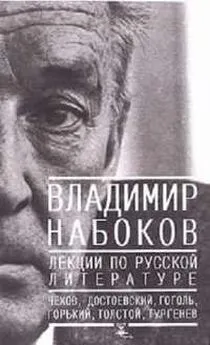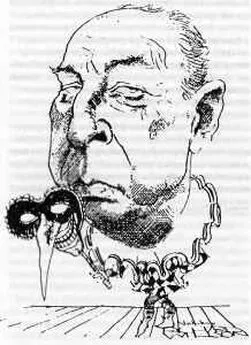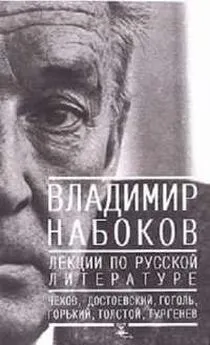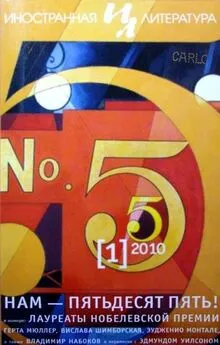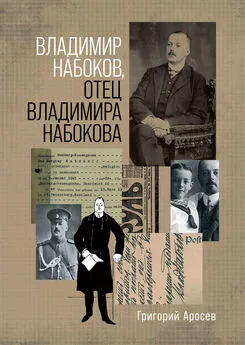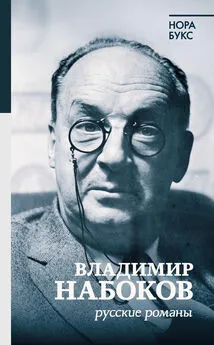Владимир Набоков - Здесь говорят по-русски.
- Название:Здесь говорят по-русски.
- Автор:
- Жанр:
- Издательство:неизвестно
- Год:неизвестен
- ISBN:нет данных
- Рейтинг:
- Избранное:Добавить в избранное
-
Отзывы:
-
Ваша оценка:
Владимир Набоков - Здесь говорят по-русски. краткое содержание
Рассказ написан в 1923 г.
На английский переведен Д. В. Набоковым.
На русском языке не публиковался.
Обратный перевод с англ. в 2011 г. Сакун С.В.
Здесь говорят по-русски. - читать онлайн бесплатно полную версию (весь текст целиком)
Интервал:
Закладка:
his wares.
Since last year, moreover, we have more than reminiscences in common. Martin has a secret, and I have been made party to that secret. "So, everything as usual?" I ask in a whisper, and he, glancing over his shoulder, replies just as softly, "Yes, thank heaven, all is quiet." The secret is a quite extraordinary one. I recall how I was leaving for Paris and stayed at Martin's till evening the day before. A man's soul can be compared to a department store and his eyes to twin display windows. Judging by Martin's eyes, warm, brown tints were in fashion. Judging by those eyes, the merchandise inside his soul was of superb quality. And what a luxuriant beard, fairly glistening with robust Russian gray. And his shoulders, his stature, his mien. ... At one time they used to say he could slit a handkerchief with a sword-one of the exploits of Richard Coeur de Lion. Now a fellow emigre would say with envy, "The man did not give in!"
His wife was a puffy, gentle old woman with a mole by her left nostril. Ever since the time of revolutionary ordeals her face had had a touching tic: she would give quick sidewise glances skyward. Petya had the same imposing physique as his father. I was fond of his mild-mannered glumness and unexpected humor. He had a large, flaccid face (about which his father used to say, "What a mug-three days would not suffice to circumnavigate it") and reddish-brown, permanently tousled hair. Petya owned a tiny cinema in a sparsely populated part of town, which brought a very modest income. And there we have the whole family.
I spent that day before my departure sitting by the counter and watching Martin receive his customers-first he would lean lightly, with two fingers, on the countertop, then step to the shelves, produce a box with a flourish, and ask, as he opened it with his thumbnail, "Einen Rauchen?" -I remember that day for a special reason: Petya suddenly came in from the street, disheveled and livid with rage. Martin's niece had decided to return to her mother in Moscow, and Petya had just been to see the diplomatic representatives. While one of the representatives was giving him some information, another, who was obviously involved with the government political directorate, whispered barely audibly, "All kinds of White Guard scum keep hanging around."
"I could have made mincemeat of him," said Petya, slamming his fist into his palm, "but unfortunately I could not forget about my aunt in Moscow."
"You already have a peccadillo or two on your conscience," good-naturedly rumbled Martin. He was alluding to a most amusing incident. Not long ago, on his nameday, Petya had visited the Soviet bookstore, whose presence blemishes one of Berlin's most charming streets. They sell not only books there, but also various handmade bric-a-brac. Petya selected a hammer adorned with poppies and emblazoned with an inscription typical for a Bolshevik hammer. The clerk inquired if he would like something else. Petya said, "Yes, I would," nodding at a small plaster bust of Mister Ulyanov.* [Lenin's real name. -D.N.] He paid fifteen marks for bust and hammer, whereupon, without a word, right there on the counter, he popped that bust with that hammer, and with such force that Mister Ulyanov disintegrated.
I was fond of that story, just as I was fond, for instance, of the dear silly sayings from unforgettable childhood that warm the cockles of one's heart. Martin's words made me glance with a laugh at Petya. But Petya jerked his shoulder sullenly and scowled. Martin rummaged in the drawer and proffered him the most expensive cigarette in the shop. But even this did not dispel Petya's gloom.
I returned to Berlin a half-year later. One Sunday morning I felt an urge to see Martin. On weekdays you could get through via the shop, since his apartment-three rooms and kitchen-was directly behind it. But of course on a Sunday morning the shop was closed, and the window had shut its grated visor. I glanced rapidly through the grating at the red and gold boxes, at the swarthy cigars, at the modest inscription in a corner: "Russian spoken here," remarked that the display had in some way grown even gayer, and walked through the courtyard to Martin's place. Strange thing-Martin himself appeared to me even jollier, jauntier, more radiant than before. And Petya was downright unrecognizable: his oily, shaggy locks were combed back, a broad, vaguely bashful smile did not leave his lips, he kept a kind of sated silence, and a curious, joyous preoccupation, as if he carried a precious cargo within him, softened his every movement. Only the mother was pale as ever, and the same touching tic flashed across her face like faint summer lightning. We sat in their neat parlor, and I knew that the other two rooms-Petya's bedroom and that of his parents-were just as cozy and clean, and I found that an agreeable thought. I sipped tea with lemon, listened to Martin's mellifluous speech, and I could not rid myself of the impression that something new had appeared in their apartment, some kind of joyous, mysterious palpitation, as happens, for instance, in a home where there is a young mother-to-be. Once or twice Martin glanced with a preoccupied air at his son, whereupon the other would promptly rise, leave the room, and, on his return, nod discreetly toward his father, as if to say everything was going splendidly.
There was also something new and, to me, enigmatic in the old man's conversation. We were talking about Paris and the French, and suddenly he inquired, "Tell me, my friend, what's the largest prison in Paris! 1" I replied I didn't know and started telling him about a French revue that featured blue-painted women.
"You think that's something!" interrupted Martin. "They say, for example, that women scratch the plaster off the walls in prison and use it to powder their faces, necks, or whatever." In confirmation of his words he fetched from his bedroom a thick tome by a German crim-inologist and located in it a chapter about the routine of prison life. I tried changing the subject, but, no matter what theme I selected, Martin steered it with artful convolutions so that suddenly we would find ourselves discussing the humaneness of life imprisonment as opposed to execution, or the ingenious methods invented by criminals to break out into the free world.
I was puzzled. Petya, who loved anything mechanical, was picking with a penknife at the springs of his watch and chuckling to himself. His mother worked at her needlepoint, now and then nudging the toast or the jam toward me. Martin, clutching his disheveled beard with all five fingers, gave me a sidelong flash of his tawny eye, and suddenly something within him let go. He banged the palm of his hand on the table and turned to his son. "I can't stand it any longer, Petya-I'm going to tell him everything before I burst." Petya nodded silently. Martin's wife was getting up to go to the kitchen. "What a chatterbox you are," she said, shaking her head indulgently. Martin placed his hand on my shoulder, gave me such a shake that, had I been an apple tree in the garden, the apples would literally have come tumbling off me, and glanced into my face. "I'm warning you," he said. "I'm about to tell you such a secret, such a secret . . . that I just don't know. Mind you-mum's the word! Understand?"
And, leaning close to me, bathing me in the odor of tobacco and his own pungent old-man smell, Martin told me a truly remarkable tale. [In this narrative, all traits and distinguishing marks that might hint at the identity of the real Martin are of course deliberately distorted. I mention this so that curiosity seekers will not search in vain for the "tobacco shop in the corner building." -V.N.]
"It happened," began Martin, "shortly after your departure. In walked a customer. He had obviously not noticed the sign in the window, for he addressed me in German. Let me emphasize this: if he had noticed the sign he would not have entered a modest emigre shop. I recognized him right off as a Russian by his pronunciation. Had a Russian mug too. I, of course, launched into Russian, asked him what price range, what kind. He gave me a look of disagreeable surprise: 'What made you think I was Russian?' I gave him a perfectly friendly answer, as I recall, and began counting out his cigarettes. At that moment Petya entered. When he saw my customer he said with utter calm, 'Now here's a pleasant encounter.' Then my Petya walks up close to him and bangs him on the cheek with his fist. The other froze. As Petya explained to me later, what had happened was not just a knockout with the victim crumpling to the floor, but a special kind of knockout: it turns out Petya had delivered a delayed-action punch, and the man went out on his feet. And looked as if he were sleeping standing up. Then he started slowly tilting back like a tower. Here Petya walked around behind him and caught him under the armpits. It was all highly unexpected. Petya said, 'Give me a hand, Dad.' I asked what he thought he was doing. Petya only repeated, 'Give me a hand.' I know my Petya well-no point in smirking, Petya-and know he has his feet on the ground, ponders his actions, and does not knock people unconscious for nothing. We dragged the unconscious one from the shop into the corridor and on to Petya's room. Right then I heard a ring- someone had stepped into the shop. Good thing, of course, that it hadn't happened earlier. Back into the shop I went, made my sale, then, luckily, my wife arrived with the shopping, and I immediately put her to work at the counter while I, without a word, went lickety-split into Petya's room. The man was lying with eyes closed on the floor, while Petya was sitting at his table, examining in a pensive kind of way certain objects like that large leather cigar case, half a dozen obscene postcards, a wallet, a passport, an old but apparently efficient revolver. He explained right away: as I'm sure you have imagined, these items came from the man's pockets, and the man himself was none other than the representative-you remember Petya's story-who made the crack about the White scum, yes, yes, the very same one! And, judging by certain papers, he was a GPU man if I ever saw one. 'Well and good,' I say to Petya, 'so you've punched a guy in the mug. Whether he deserved it or not is a different matter, but please explain to me, what do you intend to do now? Evidently you forgot all about your aunt in Moscow.' 'Yes, I did,' said Petya. 'We must think of something.'
"And we did. First we got hold of some stout rope, and plugged his mouth with a towel. While we were working on him he came to and opened one eye. Upon closer examination, let me tell you, the mug turned out to be not only repulsive but stupid as well-some kind of mange on his forehead, mustache, bulbous nose. Leaving him lying on the floor, Petya and I settled down comfortably nearby and started a judicial inquiry. We debated for a good while. We were concerned not so much with the affront itself-that was a trifle, of course-as much as with his entire profession, so to speak, and with the deeds he had committed in Russia. The defendant was allowed to have the last word. When we relieved his mouth of the towel, he gave a kind of moan, gagged, but said nothing except 'You wait, you just wait. . . .' The towel was retied, and the session resumed. The votes were split at first. Petya demanded the death sentence. I found that he deserved to die, but proposed substituting life imprisonment for execution. Petya thought it over and concurred. I added that although he had certainly committed crimes, we were unable to ascertain this; that his employment in itself alone constituted a crime; that our duty was limited to rendering him harmless, nothing more. Now listen to the rest.
"We have a bathroom at the end of the corridor. Dark, very dark little room, with an enameled iron bathtub. The water goes on strike pretty often. There is an occasional cockroach. The room is so dark because the window is extremely narrow and is situated right under the ceiling, and besides, right opposite the window, three feet away or less, there's a good, solid brick wall. And it was here in this nook that we decided to keep the prisoner. It was Petya's idea-yes, yes, Petya, give Caesar his due. First of all, of course, the cell had to be prepared. We began by dragging the prisoner into the corridor so he would be close by while we worked. And here my wife, who had just locked up the shop for the night and was on her way to the kitchen, saw us. She was amazed, even indignant, but then understood our reasoning. Docile girl. Petya began by dismembering a stout table we had in the kitchen-knocked off its legs and used the resulting board to hammer shut the bathroom window. Then he unscrewed the taps, removed the cylindrical water heater, and laid a mattress on the bathroom floor. Of course next day we added various improvements: we changed the lock, installed a deadbolt, reinforced the window board with metal-and all of it, of course, without making too much noise. As you know, we have no neighbors, but nonetheless it behooved us to act cautiously. The result was a real prison cell, and there we put the GPU chap. We undid the rope, untied the towel, warned him that if he started yelling we would reswaddle him, and for a long time; then, satisfied that he had understood for whom the mattress had been placed in the bathtub, we locked the door and, taking turns, stood guard all night.
Читать дальшеИнтервал:
Закладка:

